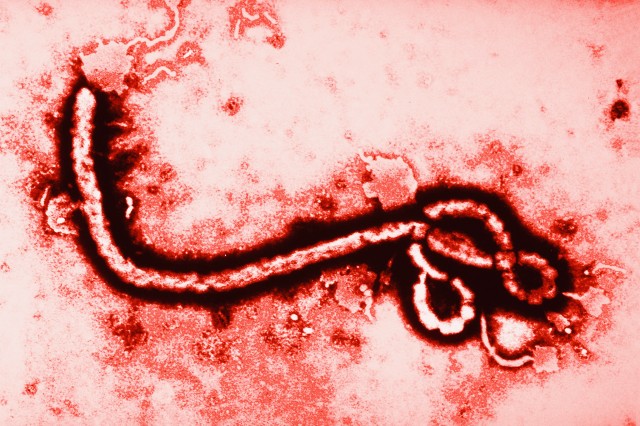In a statement, Dr. Stephen Parodi, director of hospital operations for Kaiser Northern California, said the unidentified patient is being kept in a specially equipped negative pressure room, and staff working with the patient are using "personal protective equipment."
Samples from the patient are on their way to the Centers for Disease Control and Prevention for testing, and the results will take several days. No other information about the patient was readily available, including whether the person had recently traveled to any of the West African countries where an Ebola outbreak is ongoing.
The CDPH said there are no confirmed cases of Ebola in California. One woman in New Mexico who recently returned from Sierra Leone, one of the countries with an Ebola outbreak, is also in quarantine, awaiting results of testing for Ebola. Two patients who were flown in from West Africa are being treated in Atlanta.
While Ebola is very deadly, it is difficult to transmit. The virus is passed only through direct contact with bodily fluids, and a person is only infectious once they become very ill.
"Those characteristics of the disease make it very unlikely that it would be something that would spread across the world,” said San Francisco public health officer Tomas Aragon. “We're not going to have a pandemic with Ebola."
He says any suspected cases that turn up in California will be quickly contained under American infectious disease protocols.
“It's not rocket science. It's not high tech,” Aragon said. “But it has to be very disciplined. In the U.S., people are very well trained, and they have the resources to be able to do this kind of work.”
Unlike the West African countries hard hit by Ebola, isolation units are widely available in hospitals throughout the state. Any patients would be cared for by specially trained health care workers. And the public has a greater trust of public health officials, so warnings to family members or any other people that may have come in contact with an infected person are much more likely to be heeded.
Chavez says the Sacramento case is an example of how quickly the system can identify and isolate potential infections.
“We knew it was a matter of time before we had a patient in California. California is a place with much international exposure and travel,” he said. “The case in Sacramento county really exemplifies how well our system is working.”
This post has been updated with details from a press conference with the California Department of Public Health and an interview with the San Francisco Department of Public Health.
